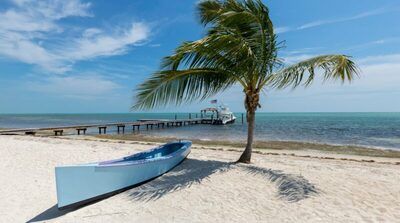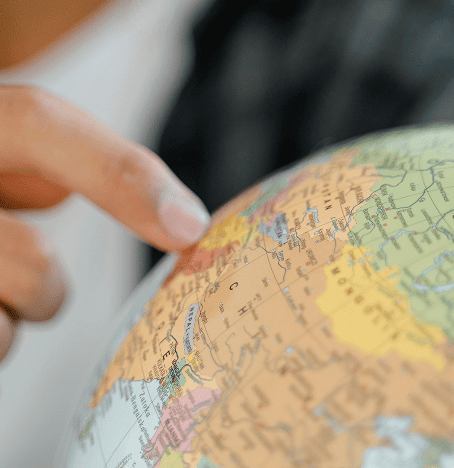Preventing Kidney Stones: Effective Strategies for a Healthier Life

Kidney stones are a common painful condition that can be experienced by anyone. These solid deposits of minerals and salts can form in the kidneys, causing agonizing pain as they move through the urinary tract. While some people are genetically more prediscovered to grow kidney stones, there are several things that we can do to help prevent these from forming in the first place. Making some lifestyle changes and simply being cautious of dietary practices can greatly reduce your chances of developing this painful condition.
1.Stay Well-hydrated
The best way to try to prevent kidney stones is to keep hydrated. Staying well hydrated by drinking adequate water during the day helps to dilute materials that create stones in the urine.Minerals and salts are less likely to crystalize and form stones when urine is dilute. Their reason behind this is that the normal, reliable advice says that you ought to be drinking 8–10 glasses, or 2–3 liters, of water a day, but whose to say what this refers to when there are so many factors in your environment, level of activity, health conditions, etc. That will determine how hydrated you need to be. Those with a history of kidney stones are often advised to drink enough water to produce around 2.5 liters of urine per day. Water remains the best, but other fluids (like herbal teas and citrus-based drinks) can help with hydration, and possible prevention, in some cases, because citrate (found in citrus-based drinks) can help reduce formation of stones.
2.Balanced Diet
Diet is also an important part of preventing kidney stones. A diet that is low in salt and animal protein may help prevent stone formation. Excessive sodium intake can raise the amount of calcium in the urine, a major component of many kidney stones. So it’s important to limit processed foods, canned soups and salty snacks. Moreover, decreased animal proteins (e.g red meat, poultry/eggs) consumption will help to decrease the urinary levels of uric acid(another contributor to stone formation). We can certainly reduce our intake of animal proteins, and replace with more plant-based proteins, like beans, lentils, and tofu.
3.Get Enough Calcium
Calcium is also misunderstood with regard to kidney stones. Although calcium is a component of many stones, avoiding calcium is not the answer. In fact, consuming adequate calcium through fooddairy products or fortified plant-based options — can help prevent stones. That’s because calcium attaches to oxalate in the intestines, where it prevents oxalate from entering the bloodstream and being filtered out through the urine, where it can lead to stone formation. But speaking of extra calcium, it is also one of the minerals which shouldn't be taken in excess as it increases stone risk.
4.Take in Oxalate-rich Foods
Another food-related factor is the consumption of foods high in oxalate.Foods that are high in oxalate contain a compound that can combine with calcium in the urine to make calcium oxalate stones — the most common type of kidney stones. Spinach, rhubarb, beets, nuts and chocolate are all high oxalate. That doesn’t mean you have to completely ban these foods, but moderation, as well as balancing these foods with calcium-rich foods, may help in stone formation.
So in summary, the avoidance of food that would cause kidney stones, drinking lots of fluid and maintaining a healthy life style solves the puzzle of staying away from kidney stones. Well, here you can really reduce your risk of this painful condition as long as you drink enough water, reduce salt and animal proteins, take enough calcium, control oxalate-rich foods and weight. Though none of these approaches guarantee immunity from kidney disease, they help support these important organs while improving your quality of life. So if you’re prone to kidney stones (or at higher risk), always check with your doctor directly for more tailored advice.
 Disclaimer:
Disclaimer:
The content provided on our blog site traverses numerous categories, offering readers valuable and practical information. Readers can use the editorial team’s research and data to gain more insights into their topics of interest. However, they are requested not to treat the articles as conclusive. The website team cannot be held responsible for differences in data or inaccuracies found across other platforms. Please also note that the site might also miss out on various schemes and offers available that the readers may find more beneficial than the ones we cover.
Related Websites
-
 Travel
TravelMust-Try Rides and Attractions at Disneyland: The Ultimate Guide
Disneyland is recognized as “The Happiest Place on Earth” for multiple reasons, cram-packed with thrilling rides, enchanting attractions, and immersive experiences and activities that can take you away from reality, no matter your age. Whether youare a first-time visitor or a Disney pro, the ability to sort out which rides are actually worth your time will make your trip all the more magical. Here’s a rundown of the most essential attractions across Disneyland’s legendary lands. -
 Automotive
AutomotiveTruck Plow Attachment: The Truck Savior in the Snow
To the extremely casual observer, a truck plow attachment is nothing but a curved blade bolted onto the front of a vehicle; yet in that first early-winter storm when the morning commute falls apart, that simple sheet of steel becomes the hinge upon which an entire region’s economy swings. -
 Travel
TravelYour Ultimate Guide to Renting the Perfect Florida Vacation Home
Dreaming of a Florida getaway? The typical hotel room can often be trade out a for fantastic private vacation home. Allow me to stretch your travel budget even more as many private homes offer you endless opportunities that the traditional hotel just cannot, like several bedrooms for friends and family, big living spaces full kitchens outdoor space, in many cases you get swimming pools. They include beachy condos on the Gulf Coast, roomy villas with private pools near Orlando’s theme parks and elsewhere.But if you want to find an ideal residency in Florida, you need some hints. Here are the factors you need to pay attention to when you choose ideal renting in Florida
Featured Articles
-
 Travel
TravelMust-Play Attractions at Universal Studios Hollywood
-
 Finance
FinanceAdvantages of Fixed Income Funds
-
 Automotive
AutomotiveHow the Cadillac LYRIQ Stands Out in the Luxury Electric SUV Market
-
 Travel
TravelMust-Try Rides and Attractions at Disneyland: The Ultimate Guide
-
 Home & Garden
Home & GardenTips to Remove Urine Stains from Your Mattress
-
 Home & Garden
Home & GardenMemory Foam Mattresses Bring You Lots of Benefits
-
 Health & Wellness
Health & WellnessPreventing Kidney Stones: Effective Strategies for a Healthier Life
-
 Finance
FinanceCredit Unions Offering the Best 5-Year CD Rates








